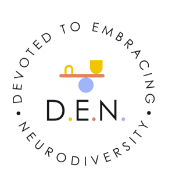Why can’t I have my cake and eat it? It’s my cake. The English language is a strange old thing, not just written but spoken language too.
What is an idiom?
According to the dictionary:
‘a group of words established by usage as having a meaning not deducible from those of the individual words (e.g. over the moon, see the light). ’ I still don’t get it either but we use idioms all the time, they definitely can jazz up a boring sentence. Why say’ stop being selfish’, a phrase we can all understand and have no blurred lines when we can say ‘you can’t have your cake and eat it.’
Idioms and Autism
Those who have an autistic diagnosis can be very literal in their thought process. This can be very confusing when listening to conversations as often the conversation will not make sense in places, this is not the fault of the autistic person but more the fault of language and how we use it.
Imagine you are interviewing a potential new employee, everything is going well, then you say “Let’s go for a walk around the site and see what you think of the place, keep your eyes peeled for forklifts”.
For the neurotypical, this is not an issue but for those with autism, you have just made their thought process go into overdrive, “see what you think”. Are you going to look into their mind, and get them to draw you a picture? Then “keep your eyes peeled”, well let’s hope that does not happen. The problem is, while they are thinking about the idioms that you have said, they are missing out on potentially important information. Could we have said, “Let’s go for a walk round and we can discuss your thoughts as we go. Forklifts are operating so we must stay on the walkways”. This can be taken literally and not have the confusion that the first statement can have.
Some of the idioms used can be extremely confusing, I have written a list of a few below and I am sure you can see how this could cause issues in everyday life not just the workplace.

| Idiom | Possible thought process |
| It’s a blessing in disguise | I wonder what the blessing is wearing and why are they in disguise |
| Break a leg | Erm, no thanks, why do you want that, most people would say good luck. |
| Cut them some slack | Where do I get the slack? Are there special scissors for slack cutting? |
| You’ve missed the boat | What boat? We are in Peterborough, nowhere near the sea, what boat are they on about? |
| I was just pulling their leg | Why? Has it shrunk and needs pulling out again? |
| Tell us a little about yourself to break the ice. | What |
| Don’t count your chickens before they hatch. | I don’t have chickens, I count sheep to sleep but not chickens.
|
This list could go on and on. We know that it’s all a part of a wonderful language, but it is not the most inclusive thing to do. The next time you are briefing your team on the importance of a task, don’t put all your eggs in one basket and assume those idioms won’t get in the way of the message you wish to deliver.

If you want to know more on how to be more neuro inclusive then visit www.d2en.co.uk or email info@d2en.co.uk


